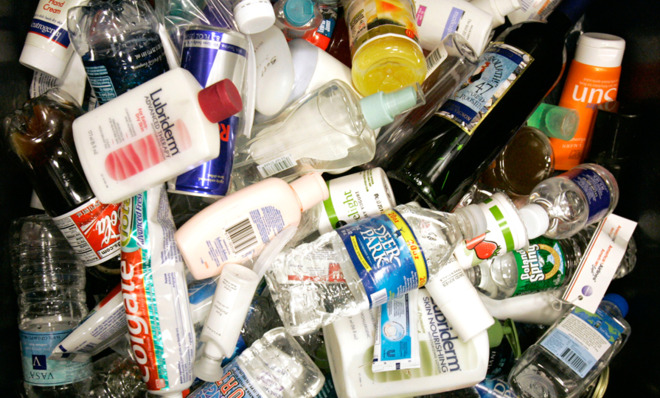What does the TSA do with your confiscated stuff?
Your impounded goods will meet one of three fates

A free daily email with the biggest news stories of the day – and the best features from TheWeek.com
You are now subscribed
Your newsletter sign-up was successful

The Transportation Security Administration confiscates all sorts of stuff — which they call "Voluntary Abandoned Property" — at security checkpoints, from handguns and knives to shampoo bottles that are just a little too big for their liking. Where does it all go? You might assume that TSA screeners just pocket what they want and take it home, but that's not normally the case. The TSA says it maintains a zero-tolerance policy when it comes to theft, and getting caught with abandoned property is grounds for termination.
Instead, your confiscated goods usually meet one of three fates: They can be sold, donated, or disposed of.
The TSA is prohibited by law from profiting from items surrendered to them, but other government agencies' hands aren't tied the same way. Stuff that could potentially be resold is turned over to the states, who flip what they can in government-run surplus centers and online auction sites like eBay or GovDeals. The return on this isn't half bad, and the state of Pennsylvania says it made some $800,000 in revenue from re-selling confiscated property online between 2004 and 2012.
The Week
Escape your echo chamber. Get the facts behind the news, plus analysis from multiple perspectives.

Sign up for The Week's Free Newsletters
From our morning news briefing to a weekly Good News Newsletter, get the best of The Week delivered directly to your inbox.
From our morning news briefing to a weekly Good News Newsletter, get the best of The Week delivered directly to your inbox.
Other stuff is donated to local non-profit organizations, schools, and government agencies, who can either use it — scissors might go to underfunded schools, mace might go to police departments or academies — or sell it.
Shampoo and most other prohibited liquids and chemicals are simply thrown out. These used to get donated or sold, but the TSA stopped doing that when they realized the liability risk. That shampoo might not really be shampoo, or a water bottle might not be full of actual H2O, so it's safer and more efficient to just dispose of whatever it is.
That leads us to another question: If your more-than-3.4-ounce container isn't allowed on the flight for fear of you blowing up the plane, why is it okay in a trashcan in the airport? According to the TSA, the issue isn't any one container of liquid, but someone using liquid explosives and other components to make an explosive device on the plane. Without all the other necessary components to complete the bomb, the liquid in the trashcan, on its own, is considered less of a threat.
Weapons and other select items have their own protocols. If someone tries to board a plane with a handgun on them, for example, local law enforcement is called to investigate, and may take the weapon and arrest or cite the person who had it.
A free daily email with the biggest news stories of the day – and the best features from TheWeek.com
More from Mental Floss...
-
 The ‘ravenous’ demand for Cornish minerals
The ‘ravenous’ demand for Cornish mineralsUnder the Radar Growing need for critical minerals to power tech has intensified ‘appetite’ for lithium, which could be a ‘huge boon’ for local economy
-
 Why are election experts taking Trump’s midterm threats seriously?
Why are election experts taking Trump’s midterm threats seriously?IN THE SPOTLIGHT As the president muses about polling place deployments and a centralized electoral system aimed at one-party control, lawmakers are taking this administration at its word
-
 ‘Restaurateurs have become millionaires’
‘Restaurateurs have become millionaires’Instant Opinion Opinion, comment and editorials of the day